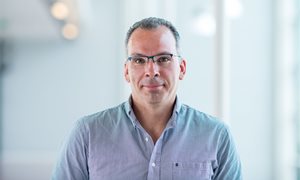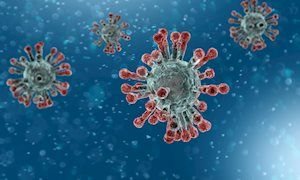
A team of sixteen Dutch hospitals receive a grant of 1.4 million euros from ZonMw. They will investigate whether they can reduce medication related hospital readmissions. To this end, they are setting up teams consisting of a physician and a hospital pharmacist. These teams coordinate the medication just before the patient's discharge with all the specialists involved, the general practitioner, the pharmacist and the patient.
Older people with multiple conditions who end up in the hospital often have a long list of medications. And it is precisely that pile of pills that makes them vulnerable and frequently causes readmission. "A big problem of modern medicine is that the care for a patient is cut up into many pieces," says internist Kees Kramers, project leader from Radboudumc. "One specialist looks at the heart, another at the joints. But no one has the overview of the whole patient and all the prescribed pills. The general practitioner (GP) could have the overview, but often doesn't have enough expertise or the mandate to change pills."
Communication
Kramers wants to better coordinate medication use. That's why he set up the LIMONCELLO research project, which is now receiving a 1.4 million euro from ZonMw, together with rheumatologist and clinical pharmacologist Noortje van Herwaarden from the Pharmacology-Toxicology department and researchers from various other academic centers. In the project, a team per hospital, consisting of a hospital pharmacist and a physician, looks at the medication just before the discharge of a patient from the hospital. Are all those pills necessary? How do they affect each other? If necessary they adjust those pills, with the goal of fewer hospital readmissions.
"Crucial to this is communication," Kramers explains. "The team of pharmacist and physician consults with the specialists involved to see if the medication can be changed. They also contact the GP, who retains central control over the patient. The GP may have important additional information. Then the team writes a letter that goes along with the treatment report from the hospital, to all the specialists involved, the GP, the community pharmacist and the patient. We have seen in the past that comparable projects didn’t succeed because of poor communication and the lack of a central point of contact. We are going to do that differently."
Integrated care
Sixteen hospitals are participating in the project, including all UMCs. For the study, they select high-risk patients for whom there is a high chance that medication plays a role in a new hospitalization. Hospitals will be randomly divided into two groups. One group will apply the new method, with the integral assessment of the patient and medication by a team of a physician (an internist or geriatrician) and a pharmacist. The other group applies standard clinical care.
"We are investigating if we can reduce the number of readmissions and visits to the emergency room with our approach," explains van Herwaarden. "Giving fewer pills is not a goal in itself, but we do expect that medication use will decrease. In addition, we are following the patients for a year. How do they like the new approach and how is their quality of life? We also ask GPs and pharmacists how they experience a team in the hospital coordinating the medication."
Cost-effectiveness
Another important part of the study is cost-effectiveness. Kramers: "We can only implement the new approach successfully if we know how much time and money it will cost, and whether the benefits outweigh the additional investment. We will monitor this extensively. If our approach works, this should become reimbursed care in the future."
-
Want to know more about these subjects? Click on the buttons below for more news.
More information
Annemarie Eek

wetenschapsvoorlichter
Related news items

More than five million euros for research to improve palliative care Jeroen Hasselaar will lead research project with Horizon grant
15 June 2022 Jeroen Hasselaar will lead a large international research project. With a 5.3 million euro grant from the EU's Horizon program, he and his team want to improve palliative care for cancer patients, together with partners from nine European countries. go to page
Ioannis Sechopoulos receives NWO Vici grant for research on improving breast cancer diagnostics
1 March 2022 Ioannis Sechopoulos will conduct research into improving tomosynthesis, an X-ray examination that radiologists use to detect breast cancer. go to page
NIH grant for follow-up research on tuberculous meningitis
10 February 2022Met subsidie van het Amerikaanse NIH gaat With a grant from the U.S. NIH, Reinout van Crevel will continue to unravel the disease process of tuberculous meningitis.
go to page
Most COVID-19 ICU survivors experience symptoms one year after ICU admission Publication in JAMA
25 January 2022 75% of the COVID-19 survivors who were treated in the Intensive Care Unit (ICU) experience physical, mental and/or cognitive problems one-year post ICU. This shows the large-scale MONITOR-IC study led by Radboudumc. go to page
